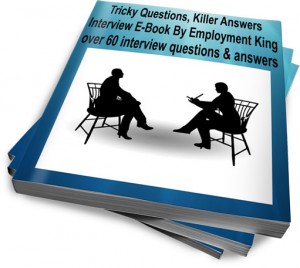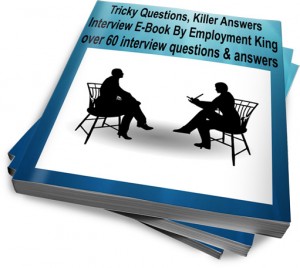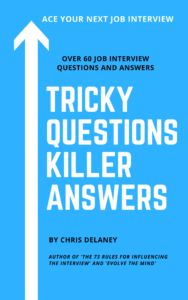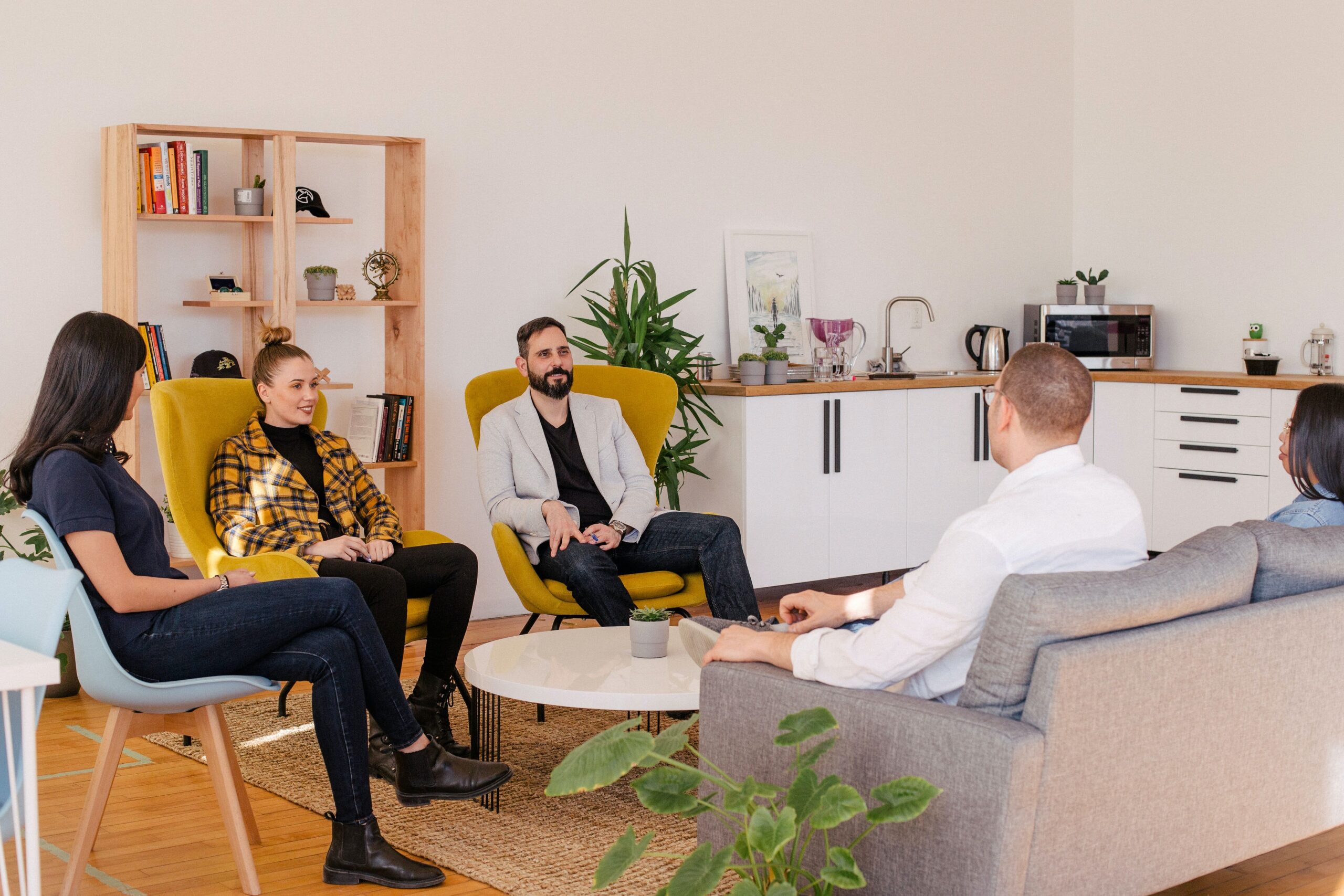Interview Questions and Answers
Imagine being at an interview and as you sit there, listening to the interview questions, you realise you know all the answers!
How does that make you feel?
When this happened to me, I felt excited knowing I was going to enjoy this interview and you can feel this excitement to, starting with the excited feeling in your stomach, like a hot buzz and it quickly rushing through your whole body, as you know you will pass this interview with the interview answers you are going to learn.
Job hunters who fail interviews are nervous.
If you don’t prepare, you prepare to fail, if you’re not serious about passing your next interview don’t read any further. You will want to learn how to predict interview questions and how to word your reply in such away the interviewer is blown away by your answer – these powerful answers can soon be yours.
Below you find an extract from Employment King’s New Interview Question’s E-book; Tricky Questions, Killer Answers. With over 60 interview questions and answers, and techniques to help you predict and understand your industries interview questions, the issue isn’t about having all the answers to your interview questions, but how natural you will be when giving these killer answers to the interviewer, how much time are you willing to spend preparing for the interview?
The e-book is so much more then just a list of interview questions and answers, of course knowing the tricky questions and how to answer them is important and I would add knowing how to predict the question and answer it using examples from your own experiences is just as important. Today we will share with you 5 interview questions and answers, once you realise how useful these are, you will then feel compelled to click the buy now button below to download the full e-book.

Tell me about yourself
One of the most common asked questions at interviews, normally asked at the beginning of an interview, this question gives you the opportunity to deliver a short statement about your experiences and skills relevant to the job position you are applying for.
- Start with a “selling” line that will highlight your main strength and/or achievement
- Keep each point brief as you can explain each point again in more detail throughout the interview
- You want to interest the interviewer and get them to want to know more about you
- End this answer with a reason why you’re looking for a new job
“I’ve been working in Sales for 8 years; I have a great understanding of selling insurance to the public and businesses. My innovative sale techniques have increased profits by 25% year on year for the past 3 years. I am now ready for a new challenge and with your company having a great reputation, I believe this is the opportunity I have been waiting to apply for”
Why did you leave your last job?
Be positive with this answer and smile – employers like to hear that you left for a good opportunity or reason, a chance to do something special or for a good career move.
- Start the answer with a look back
- Explain what you enjoyed about your previous role
- Give a Positive reason for leaving
“I enjoyed working at Company Name and really enjoyed the interaction of working with a wide range of individuals-I feel I have gained a lot of transferable skills from this experience, which I can use in this role. It was a hard choice to leave but I felt that this great opportunity is the next obvious step for me”
What have you done to improve yourself over the last 12 months?
The world is now moving at a fast pace and employers and business keep up by evolving just as quick. Employers are looking for people who like to self improve. Discuss courses you have been on, new systems you have learnt, skills you have picked up and end with how you enjoy learning and easily pick up new things quickly.
“As the industry and technology we use is changing at a rapid pace, I constantly keep myself updated. Since graduating at university I have undertaken several short courses on new ICT systems to help improve my knowledge”
Have you ever had a problem with a supervisor?
This could be a trap-they want to see if you will speak ill of a pass employer. Start by explaining that “you have always worked well with your supervisors”, if they push this question, continue by giving an answer along the lines of this:
“The only thing I can think of is when I was asked by a supervisor to complete a task, and I already had a task that needed completing by a certain deadline. My supervisor was a little stressed but we prioritised the work and got both jobs done on time”
Can you tell me about your Gap Year, recorded on your CV?
Many of us take a gap year after university, when asked this question the employer is looking if you “bummed” around or did something “interesting” explain how your gap year gave you new skills you can use in your job.
“After completing my accountancy degree I took a gap year and I travelled and worked in Asia, it was a great personal experience and I gain a lot of “life lessons” from the experience. It was also beneficial in my last role, as we had several clients in Asia, I was able to use my experience to build up company relationships”
I know you found this extract useful, and the techniques in the e-book will help with your next interview and future job and promotional interviews. You can buy this e-book today andand have access to over 60 Tricky Interview Questions and Killer Answers, plus much, much more.
Massive Discount When You Buy Today

-
Was £9.99 Now Only £2.99 For a Limited Time Only
-
Click to BUY NOW and Save £7.00
All Payments taken by PayPal INSTANT DOWNLOAD
![]()
If you dont like the product, let us know within 60 days and we’ll refund your money in full – no questions asked







